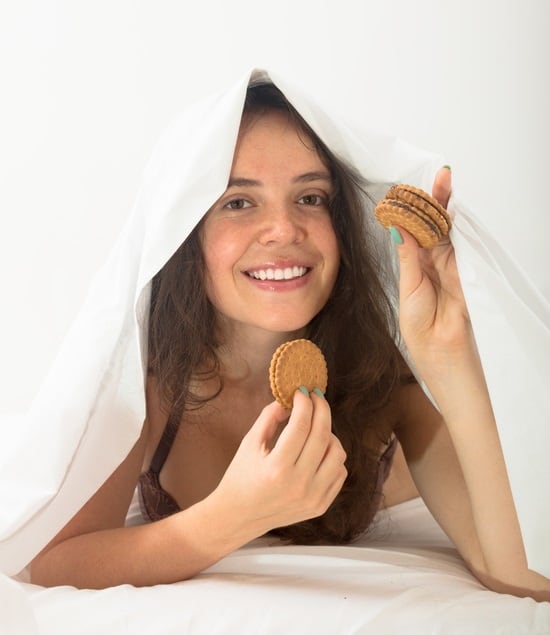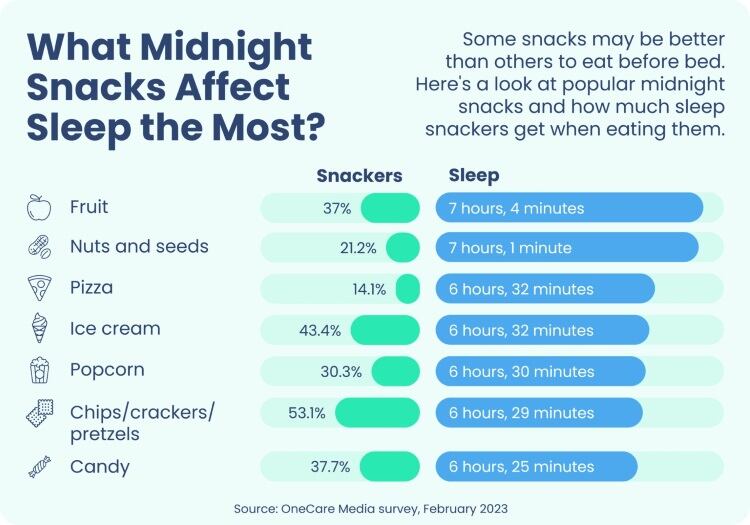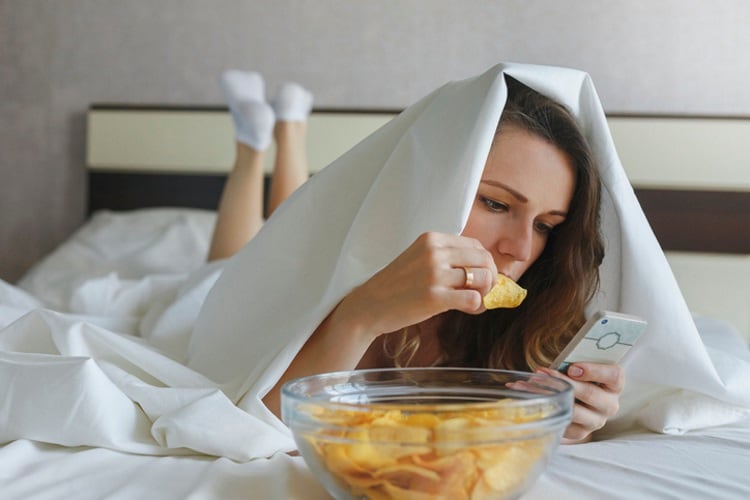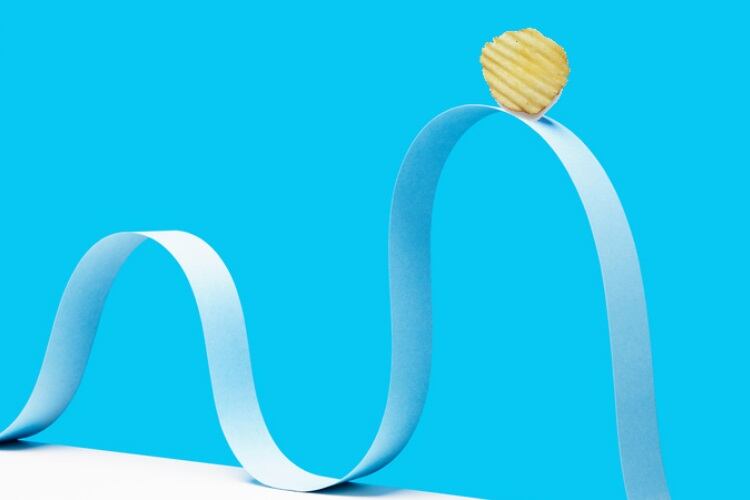Last month, Bakery&Snacks reported on the emergence of the Bioactivist consumer, a growing cohort of highly motivated, health-conscious consumers who prioritise nutrition as a proactive health measure.
In fact, the notion that ‘food is medicine’ is quickly being filtered among a wider market and consumers are increasingly seeking out snacks fortified with healthful ingredients (protein, fibre, vitamin C, probiotics) to those targeting specific health benefits, from healthy bones to mental wellbeing.
According to Kate Kehoe, a marketing executive at FMCG Gurus, snacks have become interlinked with health benefits for many consumers.
“This highlights the opportunity for brands to specifically tailor products – like being high in protein and sporting other benefits such as immune support claims,” she told this site.
Good night
Sleep is one area receiving more attention of late. Despite it being vital to support healthy brain function and maintain physical health, the Sleep Foundation notes between 30% and 48% of US adults experience insomnia, with as many as 10%-30% struggling with chronic insomnia.
Breakfast cereal giant Post Consumer Brands was the latest to jump onto the sandman bandwagon with the launch of the first-ever cereal designed to promote a good slumber in February. Sweet Dreams contains specially curated ingredients to help consumers get a healthy night’s sleep.
While conventional wisdom that eating too much or too close to bedtime can sabotage a good snooze, a February 2023 survey by One Care Media, the parent company of the Sleep Foundation, found the majority of American adults snack after dinner almost four times a week.
- Adults who snack every night even report sleeping one minute longer each night than those who never snack.
- 58.5% of respondents say they feel satisfied after their snack, compared to 21.8% feeling stuffed, 16% feeling guilty and 15.2% feeling bloated.
Sleep Foundation Medical Review expert Dr Abhinav Singh (MD) – also medical director of the Indiana Sleep Center – believes snacking before bed might not be harmful, depending on the choice.
“A small snack 30 to 40 minutes before bed is fine if you feel a little hungry,” he said.
“Try to incorporate foods that promote a good night’s sleep, like cherries and pistachios that include tryptophan and melatonin. That may give you that little drowsiness or initiation of sleep effect.”

The do’s and don’t
Dr Singh said timing is everything. Wait at least three hours from putting down the dinner plate to climbing into bed.
“A heavy meal in the evening will make more work for your gastrointestinal tract. If you eat a lot [and go right to bed], your sleep quality will be poor because everything [in your system] is awake.”
He recommends a three hour break between putting down the dinner plate to climbing into bed.
Americans, on the whole, follow that recommendation, typically eating dinner at around 6:30pm, snacking at 8:33pm and diving into bed at 11:10pm.
What we’re chowing down on, though, is what’s more worrying to the scientists, with consumers veering towards less healthy foods at night, adding calories, sugar, salt and saturated fat to the diet.
“Our ability to make smart food choices diminishes when we are tired,” said Taylor Wallace, Ph.D., CEO at Think Healthy Group and an adjunct professor in the Department of Nutrition and Food Studies at George Mason University.
- The go-to night snacks among 53.1% of survey respondents are chips, crackers and pretzels.
- Sugary snacks are also favoured, with 3.4% choosing ice cream; 42.8% grabbing a slice of a cake or a cookie; and 37.7% tucking into candy.
- While less desired, the survey revealed a liking for a piece of fruit (37%); popcorn (30.33%); turning breakfast upside down with a bowl of cereal (21.2%); seeds and nuts (21.2%); and cheese (20%).
- These folks may be onto something: Respondents who choose the BFY options report sleeping at least 30 minutes more each night than those who snack on pizza, chips, crackers, pretzels and candy.

Sleep-smart snacking
According to the Foundation, the seeds and nuts snackers, for example, reported sleeping 7 hours, 1 minute per night, compared to 6 hours and 25 minutes for candy fans.
This could have something to do with the stabilising power of fibre, which is filling – think puppy dog syndrome – and helps to manage blood sugar. So high-fibre foods – popcorn, whole grains, raw fruits and veg – will keep blood sugar stable through the night. Low blood sugar often triggers hunger, which in turn, will cause a restless night.
The survey found that how often a person snacks before bed also plays a role in sleep onset latency (how long it takes to fall asleep).
- 41.6% of adults who have a late-night snack less than two nights a week fall asleep within 20 minutes, considered normal.
- This drops to 32.6% of adults who snack six or seven nights a week.
- People who snack every night typically retire an hour later (11:37pm) than those who never snack
- Only a third (33.2%) who snack six or seven nights a week consider themselves morning people, compared to 43.7% of non-snackers.
- 49.4% of non-snackers report feeling productive most days, compared to 43% of adults who snack six or seven nights each week.
- A greater percentage of non-snackers say they regularly feel well-rested and physically sound, as well.
Getting into the mood
While it’s important to make the right food choices to prioritise health and wellbeing throughout the day, it’s never been more critical than just before bed.
The survey was commissioned by OneCare Media and conducted on the online survey platform Pollfish on 3 February 2023 among 1,250 survey US participants who were 18+ years-old.
Wallace recommends avoiding overly caloric foods and those that contain refined grains or added sugars. Dr Singh adds steering clear of caffeine (coffee, tea and certain chocolates), which will make it hard to fall asleep.
Conversely, a small snack 30-40 minutes before lights out can help ensure you’re not hungry and can help you settle when trying to bring on the sandman. In fact, a high-protein bedtime snack can help active people build muscle and reduce morning hunger.
For a healthy bedtime snack, Dr Singh suggests incorporating ingredients that promote a good night’s sleep.




